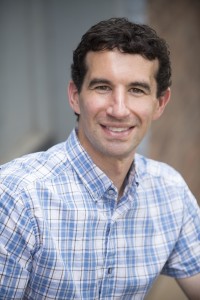Program on Science, Technology and Society at HarvardHarvard Kennedy School of Government | Harvard University |
|||||||||
|
|
Jay Aronson is the founder and director of the Center for Human Rights Science at Carnegie Mellon University. He is also an Associate Professor of Science, Technology, and Society in the History Department. He was a Post-Doctoral Fellow with the Program on Science, Technology & Society (STS) at the Harvard Kennedy School of Government in 2003-2004. His research and teaching focus is on the interactions of science, technology, law, and human rights in a variety of contexts. He recently completed a long-term study of the ethical, political, and social dimensions of post-conflict and post-disaster identification of the missing and disappeared, and been involved in various projects to improve the quality of civilian casualty recording and estimation in times of conflict.
This work was funded by generous grants from the U.S. National Institutes of Health (NIH) and the U.S. National Science Foundation (NSF). Jay is currently being supported by Humanity United, MacArthur Foundation, and Oak Foundation to facilitate collaborations between technologists and human rights practitioners. The goal of these partnerships is to develop better tools and approaches for acquiring, authenticating, analyzing, and archiving human rights-related video and images. His work in this domain also explores the extent to which the democratization of human rights documentation (through the global spread of social media and mobile phones with cameras) is leading to an increase in accountability and the prevention of atrocities. Jay’s previous research focused on the development and use of forensic DNA identification in the American criminal justice system. His first book, entitled Genetic Witness: Science, Law, and Controversy in the Making of DNA Profiling (Rutgers University Press, 2007), examined the development of forensic DNA analysis in the American legal system. His next book, on the recovery, identification and memorialization of the victims of the 9/11 World Trade Center attacks, will be published by Harvard University Press in Fall 2016. Jay received his Ph.D. in History of Science and Technology from the University of Minnesota and was both a pre- and post-doctoral fellow at Harvard University’s John F. Kennedy School of Government. PublicationsBooks Genetic Witness: Science, Law, and Controversy in the Making of DNA Profiling (New Brunswick, NJ: Rutgers University Press, 2007) Edited Books Taylor B. Seybolt, Jay D. Aronson, and Baruch Fischhoff, Counting Civilian Casualties: An Introduction to Recording and Estimating Nonmilitary Deaths in Conflict (Oxford University Press, 2013). Articles “Challenging Impunity with User Generated Content,” International Justice Monitor, June 1, 2015. Barbara Prainsack and Jay D. Aronson, “Forensic DNA Databases: Ethical Issues,”International Encyclopedia of the Social and Behavioral Sciences, 2015, 9: 339-345. Alex John London, Lisa S. Parker and Jay D. Aronson, “DNA Identification After Conflict or Disaster,” Science, 2013, 341: 1178-1179. Lisa S. Parker, Alex John London and Jay D. Aronson, “Incidental findings in the use of DNA to identify human remains: An ethical assessment,” Forensic Science International: Genetics, 2013, 7: 221-229. “The Strengths and Limitations of South Africa’s Search for Apartheid-Era Missing Persons,” International Journal for Transitional Justice, 2011, 5(2): 262-281. Jay D. Aronson and Simon A. Cole, “Science and the Death Penalty: DNA, Innocence, and the Debate over Capital Punishment in the United States,” Law and Social Inquiry, 2009, 34(3): 603-633. “Neuroscience and Juvenile Justice,” Akron Law Review, 2009, 42: 917-930. “Creating the Network and the Actors: The FBI’s Role in the Standardization of Forensic DNA Profiling,” Biosocieties, 2008, 3(2): 195-215. “Brain Imaging, Culpability, and the Juvenile Death Penalty,” Psychology, Public Policy, and Law, 2007, 13(2): 115-142. “The ‘Starch Wars’ and the Early History of DNA Profiling,” Forensic Science Review, 2006, 18(1): 59-72. “DNA fingerprinting on trial: the dramatic early history of a new forensic technique,”Endeavour, 2005, 29(3): 126-131. “Molecules and Monkeys: George Gaylord Simpson and the Challenge of Molecular Evolution,” History and Philosophy of the Life Sciences, 2002, 24: 441-465. Book Chapters “Mobile Phones, Social Media, and Big Data in Human Rights Fact Finding: Possibilities, Challenges, and Limitations,” in Philip Alston and Sarah Knuckey, The Transformation of Human Rights Fact-Finding (Oxford University Press, 2015), pp. 441-461. Taylor B. Seybolt, Jay D. Aronson, and Baruch Fischhoff, “Introduction,” in Taylor B. Seybolt, Jay D. Aronson, and Baruch Fischhoff, Counting Civilian Casualties: An Introduction to Recording and Estimating Nonmilitary Deaths in Conflict (Oxford University Press, 2013). pp. 3-13. “The Politics of Civilian Casualty Counts,” in Taylor B. Seybolt, Jay D. Aronson, and Baruch Fischhoff, Counting Civilian Casualties: An Introduction to Recording and Estimating Nonmilitary Deaths in Conflict (Oxford University Press, 2013), pp. 29-50. Jay D. Aronson, Baruch Fischhoff, and Taylor B. Seybolt, “Moving toward More Accurate Casulaty Counts,” in Taylor B. Seybolt, Jay D. Aronson, and Baruch Fischhoff,Counting Civilian Casualties: An Introduction to Recording and Estimating Nonmilitary Deaths in Conflict (Oxford University Press, 2013), pp. 285-298. “Humanitarian DNA Identification in Post-Apartheid South Africa,” in Keith Wailoo, et al. (eds), Genetics and the Unsettled Past (Rutgers University Press, 2012), pp. 295-312. “Certainty v. Finality: Is there a Fundamental Constitutional Right to Post-Conviction DNA Testing?,” in Sheila Jasanoff (ed.) Reframing Rights: Bio-Constitutionalism in the Genetic Age Age (MIT Press, 2011), pp. 125-146. Simon A. Cole and Jay D. Aronson, “Blinded by Science on the Road to Abolition?,” in Austin Sarat and Charles Ogletree (eds.), The Road to Abolition (NYU Press, 2009), pp. 46-71. “On Trial! Governing Forensic DNA Technologies in the United States,” in Richard Hindmarsh and Barbara Prainsack (eds.), DNA Profiling and Databasing: Governing the Challenges of New Technologies (Cambridge University Press, 2010), pp. 24-261. Simon A. Cole and Jay D. Aronson, “Blinded by Science on the Road to Abolition?,” in Austin Sarat and Charles Ogletree (eds.), The Road to Abolition (NYU Press, 2009), pp. 46-71.
Note: The above information concerns a past fellow at the Program on Science, Technology, and Society at the Harvard Kennedy School. It does not constituent evidence of current enrollment. The information may be out of date. To update their information, past fellows should e-mail the site administrator.
|
||||||||
